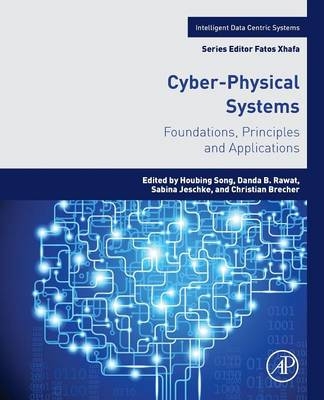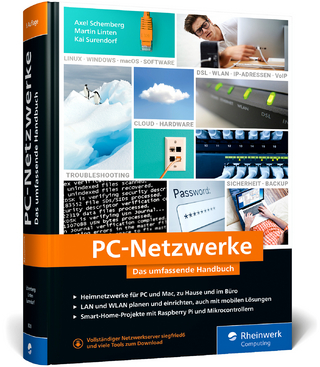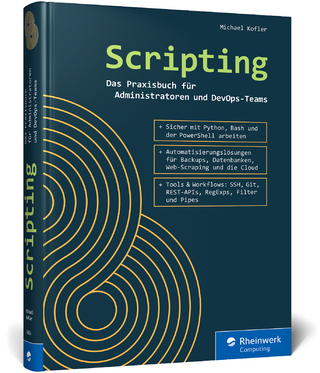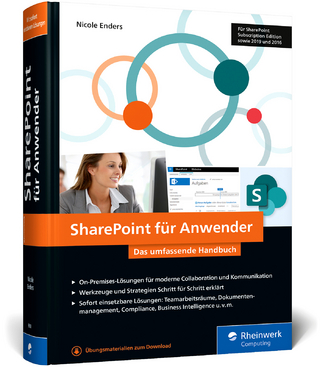
Cyber-Physical Systems
Academic Press Inc (Verlag)
978-0-12-803801-7 (ISBN)
Indexing: The books of this series are submitted to EI-Compendex and SCOPUS
Houbing Song, Security and Optimization for Networked Globe Laboratory, University of Maryland, Baltimore County (UMBC), Baltimore, USA. His research interests include cyber-physical systems, cybersecurity and privacy, IoT, big data analytics, connected vehicles, smart health, wireless communications, and networking. Dr. Song has edited and authored several books in the field, including Cyber-Physical Systems: Foundations, Principles and Applications. Danda B. Rawat is a Full Professor in the Department of Electrical Engineering & Computer Science (EECS), Founding Director of the Howard University Data Science and Cybersecurity Center (DSC2), Founding Director of Cyber-security and Wireless Networking Innovations (CWiNs) Research Lab, Graduate Program Director of Howard-CS Graduate Programs and Director of Graduate Cybersecurity Certificate Program at Howard University, Washington, DC, USA. Dr. Rawat is engaged in research and teaching in the areas of cybersecurity, machine learning and wireless networking for emerging networked systems including cyber-physical systems, Internet-of-Things, smart cities, software defined systems and vehicular networks. His professional career comprises more than 15 years in academia, government, and industry. He has secured over $4 million in research funding from US National Science Foundation, US Department of Homeland Security, Department of Energy, National Nuclear Security Administration (NNSA), DoD Research Labs, Industry (Microsoft, Intel, etc.) and private Foundations. Dr. Rawat is the recipient of NSF CAREER Award in 2016, the US Air Force Research Laboratory (AFRL) Summer Faculty Visiting Fellowship in 2017, Outstanding Research Faculty Award (Award for Excellence in Scholarly Activity) at GSU in 2015, the Best Paper Awards and Outstanding PhD Researcher Award in 2009. He has delivered over 15 Keynotes and invited speeches at international conferences and workshops. Dr. Rawat has published over 200 scientific/technical articles and 9 books. He has been serving as an Editor/Guest Editor for over 30 international journals. He has been in Organizing Committees for several IEEE flagship conferences such as IEEE INFOCOM, IEEE CNS, IEEE ICC, IEEE CCNC and so on. Dr. Rawat received the Ph.D. degree from Old Dominion University, Norfolk, Virginia. Dr. Rawat is a Senior Member of IEEE and ACM, a member of ASEE. and a Fellow of the Institution of Engineering and Technology (IET). .. Sabina Jeschke is head of the institute cluster IMA/ZLW & IfU at the RWTH Aachen University since 2009. She studied Physics, Computer Science and Mathematics at the Berlin University of Technology. After research stays at the NASA Ames Research Center/ California and the Georgia Institute of Technology/Atlanta, she gained a doctorate on “Mathematics in Virtual Knowledge Environments in 2004. Following a junior professorship (2005-2007) at the TU Berlin with the construction and direction of its media center, she was head of the Institute of Information Technology Services (IITS) for electrical engineering at the University of Stuttgart from May 2007 to May 2009, where she was also the director of the Central Information Technology Services (RUS) at the same time. Her research areas are inter alia distributed artificial intelligence, robotics and automation, traffic & mobility, virtual worlds and innovation & future research. Sabina Jeschke is vice dean of the Faculty of Mechanical Engineering of the RWTH Aachen University, chairwoman of the board of management of the VDI Aachen and member of the supervisory board of the Körber AG. She is a member and consultant of numerous committees and commissions, alumni of the German National Academic Foundation (Studienstiftung des deutschen Volkes), IEEE Senior and Fellow of the RWTH Aachen University. In July 2014, the Gesellschaft für Informatik (GI) honoured her with their award Deutschlands digitale Köpfe (Germany's digital heads). In September 2015 she was awarded the Nikola-Tesla Chain by the International Society of Engineering Pedagogy (IGIP) for her outstanding achievements in the field of engineering pedagogy. Prof. Dr.-Ing. Christian Brecher has been the Ordinary Professor for Machine Tools at the Laboratory for Machine Tools and Production Engineering (WZL) of the RWTH Aachen as well as the Director of the Department for Production Machines at the Fraunhofer Institute for Production Technology IPT since January 1, 2004. Further, he is CEO of the Cluster of Excellence “Integrative Production Technology for High-Wage Countries that is funded by the German Research Foundation (DFG). After finishing his academic studies in mechanical engineering, he started his professional career first as a research assistant and later as a team leader in the department for machine investigation and evaluation at the WZL. From 1999 to April 2001, he was responsible for the department of machine tools in his capacity as a Senior Engineer. After a short spell as a consultant in the aviation industry, Professor Brecher was appointed in August 2001 as the Director for Development at the DS Technologie Werkzeugmaschinenbau GmbH, Mönchengladbach, where he bore the responsibility for construction and development until December 2003. Prof. Brecher has received numerous honours and awards including the Springorum Commemorative Coin, the Borchers Medal of the RWTH Aachen, the Scholarship Award of the Association of German Tool Manufacturers (Verein Deutscher Werkzeugmaschinenfabriken VDW) and the Otto Kienzle Memorial Coin of the Scientific Society for Production Technology (Wissenschaftliche Gesellschaft für Produktionstechnik WGP). Currently he is chairman of the scientific group for machines of CIRP, the International Academy for Production Engineering.
PART 1 FOUNDATIONS
1. Characterization, Analysis, and Recommendations for Exploiting the Opportunities of Cyber-Physical Systems
2. Adaptive Control in Cyber-Physical Systems: Distributed Consensus Control for Wireless Cyber-Physical Systems
3. Online Control and Optimization for Cyber-Physical Systems
4. Energy-Harvesting Low-Power Devices in Cyber-Physical Systems
5. Machine-Type Communications Over 5G Systems: Challenges and Research Trends for Supporting Industrial CPS Applications.
6. Data Reliability Challenge of Cyber-Physical Systems
7. Network-Wide Programming Challenges in Cyber-Physical Systems
8. Cyber-Physical Systems and Human Action: A Re-Definition of Distributed Agency Between Humans and Technology, Using the Example of Explicit and Implicit Knowledge
9. Security and Privacy in Cyber-Physical Systems
PART 2 PRINCIPLES
10. Interfacing Cyber-Physical Production Systems With Human Decision Makers
11. Social Network Signal Processing for Cyber-Physical Systems
12. Validation, Verification, and Formal Methods for Cyber-Physical Systems
13. Benchmarking of Cyber-Physical Systems in Industrial Robotics: The RoboCup Logistics League as a CPS Benchmark Blueprint
14. Localization in Cyber-Physical Systems
15. Green Cyber-Physical Systems
16. Wireless Rechargeable Sensor Networks for Cyber-Physical Systems
17. Applying Behavioral Game Theory to Cyber-Physical Systems Protection Planning
18. Probabilistic Graphical Modeling of Distributed Cyber-Physical Systems
19. Model-Based Testing of Cyber-Physical Systems
20. Cyber-Physical Systems for Wide-Area Situational Awareness
PART 3 APPLICATIONS
21. The Need of Dynamic and Adaptive Data Models for Cyber-Physical Production Systems
22. Transformation of Mission-Critical Applications in Aviation to Cyber-Physical Systems
23. Ensuring Dependability and Performance for CPS Design: Application to a Signaling System
24. Integrating Renewable Energy Resources in Smart Grid Toward Energy-Based Cyber-Physical Systems
25. Agriculture Cyber-Physical Systems
26. An Emerging Decision Authority: Adaptive Cyber-Physical System Design for Fair Human-Machine Interaction and Decision Processes
27. Scheduling Feasibility of Energy Management in Micro-Grids Based on Significant Moment Analysis
| Erscheinungsdatum | 04.10.2016 |
|---|---|
| Reihe/Serie | Intelligent Data-Centric Systems |
| Verlagsort | San Diego |
| Sprache | englisch |
| Maße | 191 x 235 mm |
| Gewicht | 1020 g |
| Themenwelt | Mathematik / Informatik ► Informatik ► Netzwerke |
| ISBN-10 | 0-12-803801-2 / 0128038012 |
| ISBN-13 | 978-0-12-803801-7 / 9780128038017 |
| Zustand | Neuware |
| Haben Sie eine Frage zum Produkt? |
aus dem Bereich


